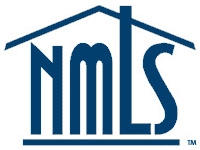Reverse Mortgages
Are reverse mortgages puzzling you? With so much conflicting information available, it can be a challenge to understand them thoroughly. This post aims to demystify reverse mortgages by presenting ten essential facts, offering balanced insights whether you’re considering one or exploring other options.
Reverse Mortgages Use Your Home’s Equity
Reverse mortgages allow homeowners to borrow against their home equity, receiving money from the lender. The lender recoups this money once the home is sold, the owner moves, or passes away.
Choose How to Receive Your Money
Funds from a reverse mortgage can be taken as a lump sum or in monthly installments, depending on what works best for your financial situation.
Types of Reverse Mortgages
There are three types: home equity conversion mortgages (HECMs), single-purpose reverse mortgages, and proprietary reverse mortgages. HECMs are the most common and can be used for any purpose.
You Still Need to Pay Property Taxes and Insurance
Reverse mortgages do not cover ongoing property expenses like taxes and insurance. Borrowers need to keep up with these payments to avoid triggering an early repayment.
Your Home Must Be Your Primary Residence
To qualify for a reverse mortgage, the home must be your primary residence. Long absences or moving away could trigger an early repayment.
You Will Still Own Your Home
Borrowers retain ownership of their homes even with a reverse mortgage. The lender does not take ownership of the home.
No Monthly Mortgage Payments
A significant advantage of reverse mortgages is that there are no monthly mortgage payments required, which can be appealing to retirees or those on a fixed income.
Federal Debt Delinquencies Can Disqualify You
Being delinquent on federal debts, like unpaid taxes or federal loans, can disqualify you from obtaining a reverse mortgage.
You Must Have Paid Off (or Nearly Paid Off) Your Home
To be eligible, you need substantial equity in your home, meaning it should be fully or nearly paid off.
Age Requirement: 62 Years or Older
Reverse mortgages are only available to those aged 62 and older. If you’re younger, consider alternatives like a home equity line of credit (HELOC).
Reverse mortgages can be a helpful tool for some, but it’s important to understand these key facts before moving forward. Now that you have a better grasp of how they work, you can make an informed decision. Get in touch today for more personalized advice or to determine if a reverse mortgage is right for you.














